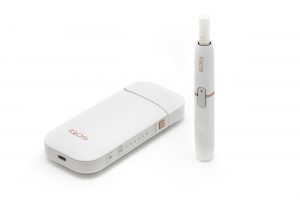Harsh Treatment for Public Interest Commenters at the ITC
The ITC has gotten itself embroiled in a messy public interest debate in Tobacco Heating Articles (Inv. 1199), a Section 337 patent case involving cigarette alternatives and the world’s three largest tobacco companies. The complaint was filed by RJ Reynolds (part of British American Tobacco) seeking to exclude imports of iQOS “heat not burn” tobacco sticks made by Philip Morris International and distributed in the United States by Philip Morris USA (part of Altria).

When the complaint was filed, respondents and a number of third parties submitted public interest comments warning that an import ban would counteract ongoing efforts to reduce cigarette smoking. Section 337 requires the ITC to consider the effects of an exclusion order on certain enumerated public interest factors, one of which is “public health and welfare.” In this case, the Commission delegated public interest fact-finding to the administrative law judge, giving the parties the opportunity to seek discovery and offer testimony in the evidentiary hearing on public interest issues.
Complainants used this opportunity to attack the credibility of the third-party commenters. They subpoenaed email correspondence between the commenters and respondents and called in some of the commenters to testify at the hearing. In essence, RJ Reynolds—a big tobacco company—sought to punish the commenters by painting them as shills for Big Tobacco.
On May 14, the ALJ released a Final Initial Determination finding in the complainant’s favor on infringement of one of the asserted patents and recommending an exclusion order. In addressing the public interest, the ALJ found that the accused iQOS product was actually less effective than other smoking alternatives at getting people to stop smoking cigarettes.
The ALJ also directly impugned the integrity of the the third party commenters. For each organization or individual that submitted comments, the ALJ described Philip Morris International’s general outreach efforts and noted that PMI directly asked them to submit a comment and in some cases reviewed the comments before submission. The ALJ then concluded: “Given the record of extensive coordination between Philip Morris and these commenters, I do not find their comments to be objective.”
Bear in mind that it is not at all uncommon in Section 337 cases involving politically-sensitive products for third-party organizations to submit public interest comments. Recent examples of this include solar panels, EV batteries, cell phones, computers, and medical research equipment.
In each of these cases, it is clear to everyone that one or both of the parties reached out to the commenters and solicited the submissions. And in every instance in which a member of Congress has written to the ITC about a Section 337 case, that letter was undoubtedly the result of direct lobbying efforts on behalf of a party.
It’s quite possible that PMI was particularly ham-fisted in its outreach efforts for this case, and that some of the commenters were overly accommodating to the company’s editorial preferences. Even so, the actions of RJ Reynolds and the ALJ in this case may have a chilling effect on future participation in public interest debates at the ITC. Submitting comments to the agency looks a lot less appealing if it risks being hauled in to testify and then publicly shamed. Indeed, as RJ Reynolds itself recently pointed out, “only three of [the twelve] original filers submitted post-ID public interest statements.”









